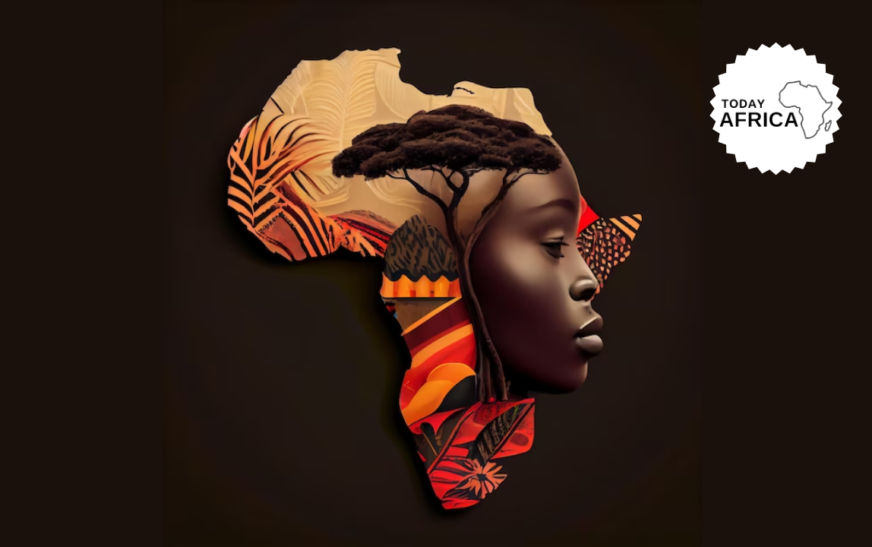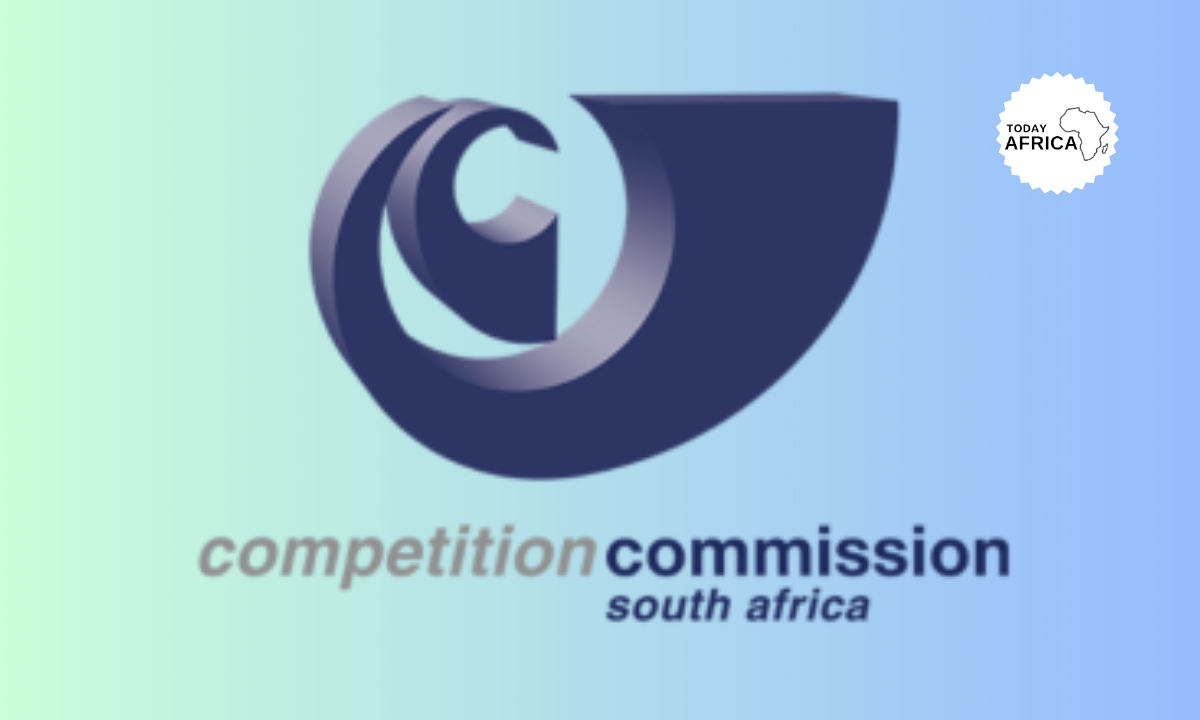Imagine your startup is based in Nairobi. Your founding product lead is in Lagos, the operations co-founder is in Accra, and the head of engineering is working from Addis Ababa.
Your team never meet in a central office every week. Instead, you coordinate across Zoom, Slack and WhatsApp, pulling together the launch of your product across West, East and Southern Africa.
This scenario, once rare, is becoming increasingly common on the African continent.
This shows Africa’s startup ecosystem is maturing and expanding fast, with talent, infrastructure and capital more abundant than before. The constraints that once bound startups are loosening.
In this article, I’ll discuss the rise of remote founding teams in Africa, what drives them, the challenges they face, and what this means for Africa’s entrepreneurial future.
The shift toward distributed teams: what’s changing
A new work model takes hold
The pandemic disrupted the world of work. On the continent, it accelerated something that had been quietly building for years: remote work.
A 2025 survey found that 93% of global employers plan to increase hiring from Africa. At the same time, African startups are increasingly embracing remote and hybrid working models.
According to Ecofin Agency, “African startups are adopting remote and hybrid work models to access scarce tech talent across the continent, reduce office costs and retain more flexible employees.”
So remote work became more acceptable globally, and that mattered for African founders. But more importantly, remote founding teams (not just remote workers) are becoming plausible.
Why? A few forces:
- Talent dispersion across Africa: Rarely are all co-founders in the same city. Many African founders work cross-border (within Africa) or even between Africa and diaspora.
- Cost pressures: Offices in Lagos, Nairobi, or Johannesburg are expensive. Startups can save on overhead by operating virtually.
- Global orientation: Many founders aim at global rather than purely local markets. A remote founding team supports that mindset.
- Technological infrastructure: Improved broadband, cheaper devices and cloud collaboration tools make remote work more feasible (though still with caveats).
Evidence of the trend
Exact data on remote founding-teams is thin. But we have proxy signals. For instance, the idea that talent in Africa will work remotely for global companies is gaining traction.
For example, the platform Remote4Africa, founded by Nigerian brothers Paul and Andrew Ezeh, connects African professionals with remote jobs globally, reaching nearly 200,000 users across Nigeria, Ghana, Kenya and South Africa.
The report by the Disrupt Africa research team shows that 94.8% of African tech startups in 2022 had at least one local in the founding team (up from 88.7% in 2021), indicating more localisation but also perhaps more distributed founders.
This suggests that remote founding teams are part of an ecosystem shift, even if we don’t yet have a neat dataset saying “X% of startups are remote-founded”.
Read Also – What It Really Costs to Build a Startup in Africa This Year
Why Africa is ripe for remote-first founding
Opportunity meets necessity
There are structural reasons Africa makes sense for this model.
- Young, digitally native talent: Across key hubs like Kenya, Nigeria, South Africa and Egypt, there’s an emerging generation comfortable with cloud tools, global communications and remote collaboration.
- Large local market plus global opportunity: Founders can start locally but scale regionally or globally. A distributed team allows reaching across borders.
- Cost arbitrage: Keeping the founding team spread can reduce costs compared with centralised offices. Savings can be reinvested.
- Greater founder reach: Founders can tap into diaspora networks, remote co-founders abroad, bringing complementing skills without relocating everyone.

But the friction is real
You need to understand that because it’s possible doesn’t mean it’s easy. The article by Ecofin piece listed big hurdles such as unreliable power, expensive data, weak broadband in many areas, and a shortage of professionals comfortable with collaborative remote tools.
A 2024 interview with Nigerian startup founders underscored this. While one founder said remote teams offer flexibility, another cautioned that “fully remote … is a bad idea for startups”, especially early on when culture, processes and trust aren’t yet established.
Hence, for Africa, going remote isn’t just a switch you pull. It demands strategy, infrastructure, discipline and culture.
Case studies of remote founding teams in Africa
Remote4Africa
Founded in 2023 by Paul and Andrew Ezeh, Remote4Africa is less about the founding team being remote and more about enabling remote work, but it carries the same logic.
Their Nigeria-based founding duo built a platform with users across Ghana, Kenya, and South Africa. Their product: connecting African digital talent with globally distributed remote jobs.
After their prior job-board business (Ngcareers) was acquired in 2020, the brothers observed the rise of remote global hiring and launched Remote4Africa.
They chose this model not because of hype, but because they believed in value: African professionals working remotely (from anywhere on the continent) for better-paying global companies.
They bootstrap, focus on unit economics, and leverage remote work for lean growth. It underscores how remote work isn’t just for employees but for founders building platforms to manage remote teams.
African founders seeking global mobility
In May 2025, a piece in TechCabal described how some first-time African founders “go global” by relocating, setting up Delaware or US entities and managing their African operations remotely.
One Nigerian fintech founder, Uzochukwu Mbamalu of Palremit, moved to Europe because he believed funders perceived risk when the founder remained in Nigeria.
This hybrid model, in which founding teams straddle Africa and the diaspora, illustrates the evolving geography of African startups.
One can be found in Lagos or Accra, but structure and capital may come through London or Dubai, with operational team members working remotely across Africa.
Read Also – How African Founders are Adapting to the Startup Funding Slowdown
Andela
Though not a “founding team” remote example in the same sense, the evolution of Andela is instructive.
Founded in 2014 with hubs in Lagos and Nairobi, by 2020 the company announced a shift to fully remote operations. Andela’s journey shows how a business anchored in Africa’s talent pool leveraged distributed work.
For founders building remote teams, or distributed founding teams, the Andela model offers proof that African talent plus global clients, a distributed team, and remote operations at scale.
The founding team in this case wasn’t entirely remote, but the operational team was, and the implications for founder-teams are clear.
Read Also – Inside Andela’s Journey: How Six People Rewrote Africa’s Tech Future
What founders and investors should watch
Founders
If you’re an African founder or want to build a remote-first company across Africa, think of these dimensions:
1. Founder alignment & clarity
Remote founding teams rely even more on shared vision, strong communication and agreed rhythms. If your co-founder is in a different time-zone, but you’re coordinating 24/7, things can easily slip.
2. Processes, culture and synchronous vs. asynchronous
From the Reddit world, one remote-startup founder warned: “Async communication is the bedrock of a good communication system while remote.”
In Africa’s context, where connectivity can be patchy, being intentional about when you meet, how you communicate and how you onboard matters.
3. Infrastructure contingency plans
When a key team member loses power or internet, common in many African cities, you need backups. Generators, mobile data, coworking spaces. The cost of interruption is high.
4. Payment, contracting and legal structures
A remote founding team may span countries. You’ll need to sort out employment contracts, equity, jurisdiction, and IP ownership. The TechCabal piece noted founders relocating to improve investor trust and simplify structures.
5. Fundraising and investor perception
Remote isn’t always enough; investor comfort still often comes from seeing the founder in the region, or having the HQ in a “safe” location. Remote founding teams must over-deliver on trust signals, tracking, traction, and governance.

Investors
Investors looking at Africa should take note:
Opportunities:
- Wider founder pool: remote founding teams allow access to talent anywhere in Africa, not just in Nairobi or Lagos.
- Leverage for scale: companies with distributed teams may scale faster across markets.
- Cost advantage: lower operating overhead can translate into higher runway or more product investment.
Red flags:
- Lack of network or visibility: remote founding teams might be harder to monitor, mentor or support if they’re entirely dispersed.
- Infrastructure risk: especially if the founding countries have unreliable connectivity or regulatory issues.
- Culture, cohesion and execution risk: if the founders are remote but disconnected, it can impact speed, trust and execution.
See Also – How Entrepreneurs can Leverage Open Banking APIs in Africa
How Africa’s geography and markets shape the trend
East Africa (Kenya, Uganda, Rwanda)
Kenya remains a hub; Nairobi’s co-working spaces, startup accelerators, and regional presence give it an advantage. In such ecosystems, remote founding teams might still cluster locally or regionally. But the advantage is that English-speaking tech talent, relative connectivity and investor presence are strong.
West Africa (Nigeria, Ghana)
In Lagos, remote founding teams are becoming more visible. The large market and vibrant tech scene mean founders often build fast and may use remote co-founders or operations in Accra, Dakar, or abroad. But infrastructure variability and capital concentration still matter.
Southern Africa (South Africa, Zambia, Zimbabwe)
South Africa offers strong infrastructure and English-language talent. Remote founding teams here may link across the region, for example a founder in Johannesburg, product lead in Zimbabwe, marketing in Zambia. But the domestic market size is smaller relative to Lagos or Nairobi.
Cross-Africa & diaspora bridging
Perhaps the most interesting dynamic: founders who span Africa and diaspora. Africans abroad launching companies with African-based founding teams, or Africa-founded companies whose senior team lives partly abroad. That model offers remote founding teams by default, and could be a key growth vector.
Challenges to overcome (and how some are doing it)
Connectivity, power and infrastructure
As the Ecofin article highlighted, unreliable power, expensive data and broadband limitations remain real. Some founders mitigate this by working from coworking hubs with backup power, giving team members stipends for UPS/data, and staggering schedules across time zones to avoid peak internet hours.
Building trust and culture remotely
For early-stage startups, founders often say you “earn” the right to remote work. One Nigerian founder cautioned that only once a team is proven should full remote be considered. Cultural norms matter, inconsistent schedules, delayed responses or ‘offline’ co-founders can erode trust quickly. Some teams mitigate this with weekly video stand-ups, documented decisions, and social check-ins.
Legal/regulatory complexity
When a founding team spans countries, you run into issues: which country is the legal entity, how do you deal with labour laws, tax jurisdictions, share-structures, currency risk? Founders moving to Europe, setting up US corporations and treating African operations as branch offices is one workaround (from the TechCabal piece). But this introduces cost, complexity and regulatory risk.
Investor perception & visibility
Remote founding teams must demonstrate credibility: traction, governance, clear finances. Being entirely remote may raise investor questions: “If we invest, where are you placing the money? Who is accountable locally? What happens in crisis?” Some founders mitigate this by hybrid presence: remote founding team plus occasional in-person gatherings or regional hubs.
Market fragmentation & logistical complexity
Although remote founding teams can span Africa, building products for diverse African markets remains hard. Each country has different languages, regulations, consumer behaviour. Remote co-founders help, but coordination becomes more complex across markets. Effective remote teams separate roles clearly (e.g., country-lead co-founder) and rely on strong local partnerships.
Read Also – 10 Mistakes African Founders Make in their First Year
What it means for Africa’s startup ecosystem
More inclusive access for founders
Remote founding teams can lower entry barriers. A talented founder in a smaller city or country doesn’t need to relocate to Lagos, Nairobi or Cape Town. They can build with co-founders spread out, tap talent across borders. That could democratise founder access and diversify ecosystems.
Regional collaboration & “Africa scale”
One of the long-standing challenges is scale: many African startups launch in one country and struggle to expand. Remote founding teams naturally bring cross-border orientation, they are physically (or digitally) present in multiple countries. That edge could help more African startups scale regionally or continent-wide.
Shift in brain-drain dynamics
Traditionally, top African talent might move to the US, Europe or Gulf. If remote founding teams become more viable, some of that talent may stay in Africa, working globally but living locally or regionally. That could reduce brain drain and retain skills on the continent.
New ecosystem roles: remote-first enablers
The trend opens up adjacent business opportunities: remote-talent platforms, remote-legal and compliance services, remote-team culture consultancies, payment/invoicing infrastructure across African countries. Some of these already exist (e.g., platforms linking African remote talent to global jobs).
A caution: not a panacea
It would be a mistake to treat remote founding teams as a silver bullet. Countries with very weak connectivity, regulatory instability or infrastructural gaps may still struggle. Also, market-fit, product, capital still matter more than geography. Remote founding team is a tool, not a guarantee of success.
See Also – Bootstrapping Business Growth Through WhatsApp Commerce
What’s next
- Hybrid remote models will likely dominate for African startups: founding teams with remote elements, but also occasional in-person meetups or regional hubs.
- Infrastructure investment (broadband, power, data affordability) will continue to be a gating factor for remote-first models.
- Investor education is needed: as investors become more comfortable with remote founding teams, more funding might flow to such setups.
- Ecosystem support (incubators, accelerators, legal-tax frameworks) will need to adapt to remote founding models: how to support a distributed team versus a single-city team.
- Founders’ mental model shifts: many African founders will see remote first as viable from the start—not just as a contingency. That mental shift could accelerate adoption.
Conclusion
The rise of remote founding teams in Africa isn’t just a by-product of COVID-era remote work; it’s a strategic evolution.
It reflects how founders on the continent are reshaping constraints into advantages, using geography to their benefit, tapping dispersed talent, building leaner structures, and aiming globally.
If you’re an African founder thinking about your next venture ask yourself:
- Do I need us all in one city?
- Or can I structure a founding team across borders?
- Can I build my product for a pan-African market with a remote team from day one?
The logistics may be more complex, yes, but the potential upside is compelling.
We’re at a moment when remote founding teams are shifting from niche to mainstream for African startups, and that deserves our attention, our support and our understanding.
Leave a comment and follow us on social media for more tips:
- Facebook: Today Africa
- Instagram: Today Africa
- Twitter: Today Africa
- LinkedIn: Today Africa
- YouTube: Today Africa Studio
















